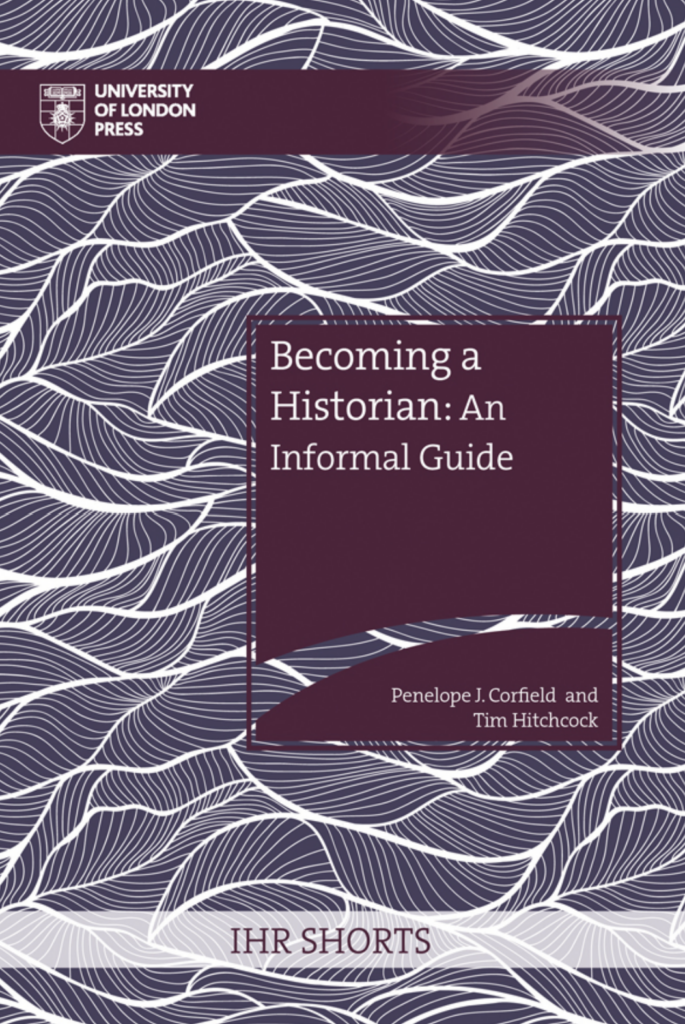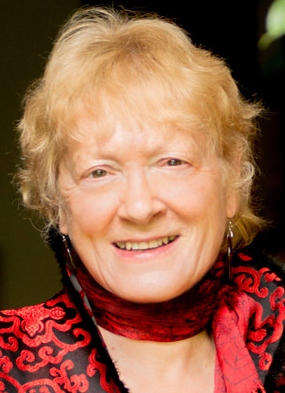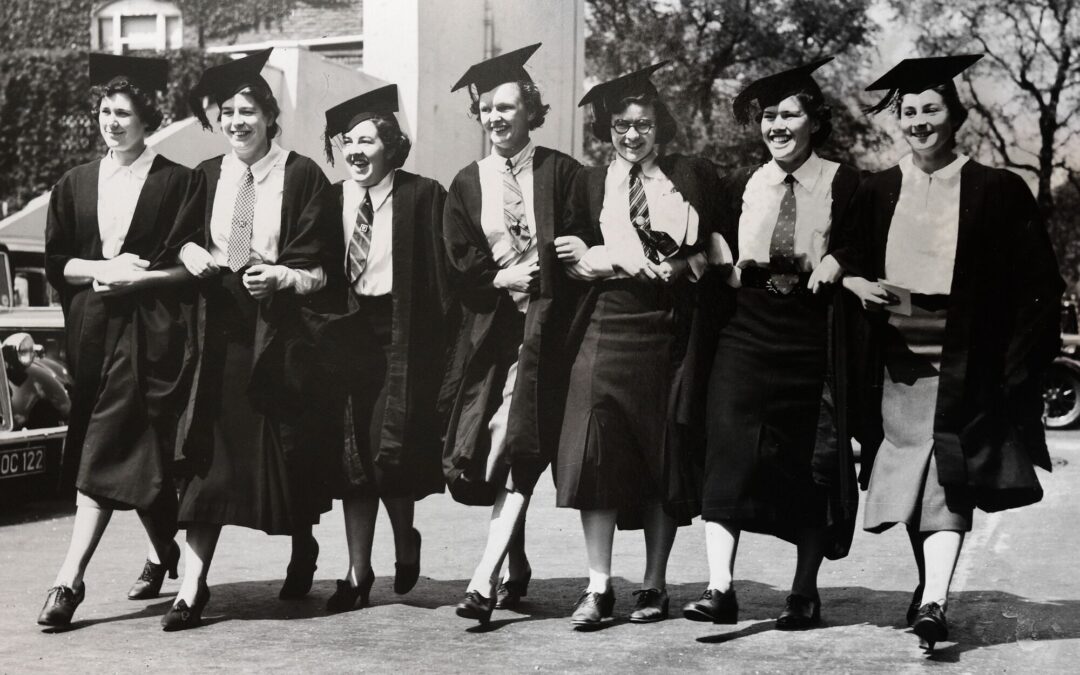This blog post was written by Tim Hitchcock and Penelope J. Corfield, authors of Becoming a Historian: An Informal Guide. In it they respond to questions from IHR students and Early Career Fellows.

Recently, we published our ‘informal guide’ to Becoming a Historian.[1] Whilst writing, we debated constantly with each other; and we hope that the book will prompt further conversations between scholars as they negotiate all the varied stages of the research journey. Vanessa Rockel, the IHR’s History Community Liaison, has kindly facilitated that process by forwarding questions that have been posed by readers. Here are our answers.
1/ Has your career in history been different from what you expected? If so, in what ways?
TH writes: When I was writing my doctorate in the early 1980s, I assumed there would be a job. I had been warned by my supervisors that the job market was awful, and I shouldn’t be naïve. But the optimism of youth, and my love of history, drove me on. Nevertheless, after five years of research and writing, I was promptly shown the door of the academy, at the height of Margaret Thatcher’s attack on universities.
Out of money and options, I worked building sites for a year or two, before landing casual teaching and part-time work as a researcher for publishers. Four years out from my doctorate, these insecure jobs finally led to a position as a junior lecturer at the then Polytechnic of North London. The position was 0.5 in early modern economic history, and 0.5 in humanities computing (about which I knew very little at the time).
What came next was a career spanning three different universities, and two very different fields. While I have continued to teach and publish 18th-century history, it was my involvement in the field of Digital History that shaped my career from that point onwards. In retrospect, the demands of the academy have pulled me towards digital work, administration, and management—while my love of historical research and writing has pulled in the opposite direction. I certainly did not end up where I expected!
PJC adds: I didn’t initially have a very clear idea of what being an academic would entail, and was motivated chiefly by a love of research.[2] But since getting into the university world, I have been both cheered by positive changes (discussed below) and infuriated by external attacks upon the value of studying the Humanities in general and History in particular. As a result, I have become committed to explaining that ‘All People Are Living Histories – Which is Why History Matters’.[3] And I have further work in the pipeline which says more on that theme.
2/ What do you think is different for those starting work in history now, compared to the start of your own life as a historian?
TH writes: The whole of the university sector has changed. It has become more professional, more inclusive, and just less excluding. When I started, supervision was largely optional, and people were left to sink or swim. There was no formal guide to how to navigate the system. And yet the hurdles one was expected to jump were high. Many fewer books and articles were being published, and the process of getting into print was incredibly long-winded.
In the polytechnics and universities, teaching was also highly controlled and monitored. During my first year of teaching full-time, there was a CNAA inspection in which five besuited men sat in the department for a week. They observed 17 hours of my own teaching, and hundreds of hours of the work of my colleagues. Every document was perused and judged in minute detail; and if they came up lacking, the course could be closed. And yet, I had never been trained in how to teach, or how the university system worked. As a first-generation academic (and recent arrival in the UK), it felt at first completely overwhelming.
I like to think that the profession is now a lot more welcoming to people from all backgrounds, and that many of the unstated rules and expectations that governed what was a profession of privilege have retreated as we have made the system more transparent.
PJC adds to that last point: Hear! hear! BUT, while we want the system to become always more welcoming and transparent, we don’t want academic work to be reduced into a mechanical tick-box process, with too many forms to submit. For one thing, it’s essential to have time to socialise with students, so that we can share the cut-and thrust of informal debate as well as formal schooling. There is such a thing as the ‘community of scholars’ and we need time to nurture that.
3/ What was the most helpful advice you were given for your career?
TH writes: For most of my career, I have been too arrogant and self-obsessed to listen to the advice of others, taking undeserved credit for decisions that have worked out, and blaming bad advice for those decisions that didn’t. Looking back, what I regret most is that I did not accept all the offers of mentorship that were available. Rather than engaging as much as I could with the senior figures I met, I tended to try and go it alone; nervously avoiding genuine offers of support.
PJC writes: Go to lots of different seminars, to work out how best to present and defend an argument—and debate firmly but courteously with everyone—seniors and juniors alike.
4/ If you could pass on just one tip for getting on with writing when you feel stuck or demotivated, what would it be?
TH writes: Writing is hard work; and writing history is even harder. It is also the only way I know of thinking clearly. So I try to cut myself some slack, and acknowledge that staring at a blank screen for a few hours, or going for a walk, or just putting it off, are all part of the process. I also try and keep a useful, but dull, job ready for when I am frustrated. This could be indexing my notes or organizing images from the archive—or cleaning my office, or renewing the insurance, or trimming my toenails. It doesn’t really matter what it is, if it makes you feel productive, and gives you space to think a little, it contributes to the writing.
PJC writes: You really have to know yourself well—in order to work out (by trial and error) how best to get yourself into the writing groove. Two practical bits of advice: set aside a good long space of time for serious history-writing (two hour minimum). And during that period, absolutely don’t take phone calls or read/write emails or consult social media.
5/ What makes it worth pursuing life as a historian, in the face of all the career challenges?
TH writes: First, writing history is a political act. How we understand the past is important. But there is also the sheer joy that can come with historical research. That imaginative leap into the minds of the long dead is overwhelming. And there is the joy of teaching—of sharing that experience with others.
PJC adds: Studying, writing, and teaching History is endlessly fascinating as well as important, which is just as well because the subject is unending. All of human life is there: including hopes, fears, facts, fictions, war, peace, wealth, poverty, youth, old age, life, death, sex, impotence, humour—and deadly seriousness. What’s not to like??
6/ How can historians support one another?
PJC and TH write jointly: A lot of historians’ work is done alone; so, it is important to find a community to counter-balance that aloneness. Attending a seminar regularly, or just building a group of like-minded friends, creates spaces where help can be sought and received. And while many people are wary of asking, we are constantly impressed with the generosity of our fellow historians. Commenting on drafts, arguing over general interpretations and over points of detail, sharing references and leads, or just commiserating over a tough day in the archives—all these things happen regularly – and they certainly ease the work of ‘becoming a historian’. In London, we have the good fortune of having an exceptional array of research seminars at the IHR (founded 1921).[4] These groups collectively foster a cross-generational community, where companionship and help of all sorts is at hand. Come and argue with us!
And a reader response from IHR’s MA in History, Place and Community student David Malony:
I enjoyed reading Chapter 1 (Part I) – Marc Bloch! Barraclough! I’d forgotten how much they meant to me as an undergrad years ago. Now, as a mature postgrad student I find Chapter 2 (Part I) particularly reassuring since, coming from a 40-year career in business where projects are team-based responsibilities, often templated, and highly managed, the prospect of starting up a project with full personal responsibility is daunting. But the templates are here too. In our business projects we followed Plan, Organise, Manage, Control (POMC – or POIC, if you preferred Integrate to Manage) and Chapter 2 follows that pretty much: Find your topic and sources (Plan), Work with your supervisor to frame a timetable (Organise), Monitor quarterly/check the timetable/report progress (Manage), and Set interim deadlines/review writing and thinking (Control).
As we always used to say at the start of a 12-week contract project that finished one year later; “We’ve thought of everything; nothing can possibly go wrong!”
ENDNOTES:
[1] P.J. Corfield and T. Hitchcock, Becoming a Historian: An Informal Guide (University of London Press, 2022): available for download via www.humanities-digital-library.org.
[2] PJC is the niece of Christopher Hill (1912-2003), the eminent Marxist historian who later became Master of Balliol College Oxford; but, in her youth, she knew nothing about his academic life, as explained in PJC, ‘Christopher Hill: The Marxist Historian as I Knew Him’ (2004; 2018): see https://www.penelopejcorfield.com/PDFs/7.4.5-CorfieldPdf47-Christopher-Hill-as-I-Knew-Him.pdf.
[3] PJC, ‘All People are Living Histories: Which is Why History Matters’ (2008): see https://archives.history.ac.uk/makinghistory/resources/articles/why_history_matters.html.
[4] For more, consult essays in D. Manning (ed.), Talking History: Seminar Culture at the Institute of Historical Research, 1921-2021 (University of London Press, 2024).
Banner image (c) University of London



